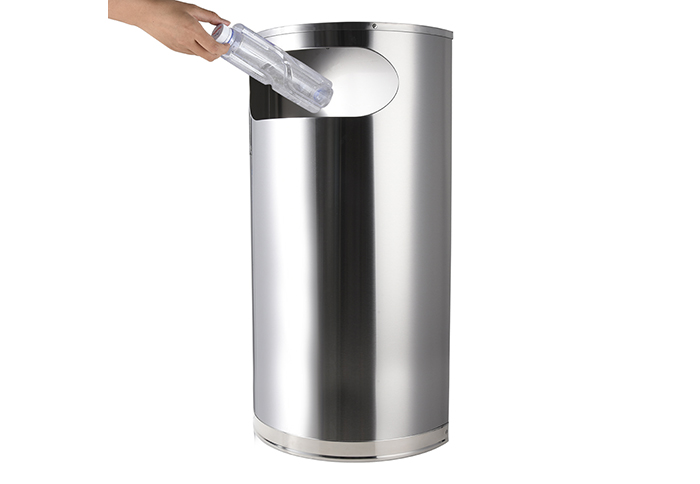What is a commercial bin?
In the intricate tapestry of waste management, the Commercial Bin emerges as a stalwart and essential tool designed to meet the unique challenges posed by businesses, institutions, and public spaces. This comprehensive exploration aims to unravel the definition of a Commercial Bin, uncover its multifaceted advantages, explore the diverse types available, scrutinize its applications across various industries, and conclude with a pragmatic Commercial Bin Buying Guide to facilitate informed choices in waste management solutions.
What is a Commercial Bin?
A commercial bin, also referred to as an industrial waste container or commercial dumpster, is a large, sturdy waste receptacle specifically crafted to cater to the substantial waste output generated by commercial establishments, manufacturing plants, institutions, and public spaces. Distinguished by its robust construction and voluminous capacity, a commercial bin is designed to handle diverse waste types, ranging from general refuse to specialized waste streams produced in commercial and industrial settings.

Advantages of Commercial Bins:
-
High Capacity: One of the primary advantages of commercial bins is their substantial capacity. Businesses and industrial facilities generate large volumes of waste, and commercial bins are built to accommodate these extensive waste streams, reducing the frequency of emptying and promoting operational efficiency.
-
Efficient Waste Management: Commercial bins play a pivotal role in streamlining waste management processes. Their size and design enable businesses to organize and manage waste more efficiently, supporting a cleaner and more organized environment while minimizing the logistical challenges associated with frequent waste removal.
-
Versatility in Waste Types: Commercial bins are versatile in accommodating different types of waste, including general refuse, recyclables, construction debris, and hazardous materials. This flexibility allows businesses to consolidate various waste streams in a centralized and organized manner.
-
Durability and Longevity: Constructed from robust materials such as steel or reinforced plastic, commercial bins exhibit exceptional durability and longevity. Their sturdy build ensures resilience against the rigors of frequent use, harsh weather conditions, and the weight of diverse waste materials.
-
Promotes Sustainability: Commercial bins contribute to sustainability efforts by providing a structured platform for waste separation and recycling. By incorporating recycling bins or compartments, businesses can actively participate in eco-friendly practices, reducing the environmental impact of their waste output.
Types of Commercial Bins:
-
Front-Load Bins: Commonly used in commercial and industrial settings, front-load bins feature a hinged lid on the front, allowing easy access for waste disposal. They are emptied by specialized waste collection vehicles equipped with a front-loading mechanism.
-
Roll-Off Dumpsters: Roll-off dumpsters are large, open-top bins with wheels that facilitate easy transportation and placement at construction sites, industrial facilities, or during large-scale clean-up projects. They are ideal for handling bulky waste items and construction debris.
-
Compactor Bins: Compactor bins utilize a built-in compaction mechanism to reduce the volume of waste, allowing for more efficient use of space and fewer required collections. These bins are particularly useful for businesses generating large quantities of non-recyclable waste.
-
Recycling Bins: Tailored to meet the growing emphasis on recycling, commercial bins with separate compartments for recyclables promote environmentally responsible waste management practices within businesses and public spaces.
Applications of Commercial Bins:
-
Retail and Commercial Establishments: Retail stores, supermarkets, restaurants, and other commercial establishments utilize commercial bins to manage the significant volume of packaging materials, food waste, and general refuse generated during daily operations.
-
Manufacturing and Industrial Facilities: Industrial and manufacturing facilities heavily rely on commercial bins to handle diverse waste streams, including production waste, hazardous materials, and general refuse. These bins play a critical role in maintaining a safe and organized working environment.
-
Construction Sites: Roll-off dumpsters are indispensable on construction sites, where they efficiently manage the disposal of construction debris, concrete, and other materials generated during building projects.
-
Educational Institutions and Public Spaces: Schools, universities, parks, and public spaces deploy commercial bins to manage the waste generated by students, faculty, and visitors. Recycling bins in these settings encourage sustainable waste disposal practices.
-
Healthcare Facilities: Hospitals and medical facilities require specialized commercial bins to manage medical waste, which may include hazardous materials. These bins adhere to stringent regulations to ensure the safe and proper disposal of healthcare-related waste.
Commercial Bin Buying Guide:
-
Size and Capacity: Consider the size and capacity of the commercial bin based on the waste volume generated by the business or facility. Select a size that aligns with the specific waste management needs to avoid frequent emptying.
-
Waste Type Compatibility: Choose a commercial bin that accommodates the specific waste types generated. For businesses prioritizing recycling, opt for bins with separate compartments for recyclables.
-
Durability and Construction: Assess the durability and construction materials of the commercial bin. Steel or reinforced plastic bins offer longevity and resilience, ensuring they can withstand the demands of industrial and commercial use.
-
Loading Mechanism: Depending on the operational requirements, select a bin with an appropriate loading mechanism whether front-load, roll-off, or compactor bins to facilitate efficient waste disposal and collection.
-
Sustainability Features: Embrace sustainability by choosing commercial bins with recycling compartments. This allows businesses to actively participate in environmentally responsible waste management practices.
-
Regulatory Compliance: Ensure that the selected commercial bin complies with local waste management regulations, especially when handling specialized waste streams such as hazardous materials or medical waste.
Conclusion:
In the intricate realm of waste management, the commercial bin stands as a stalwart ally, providing businesses, institutions, and public spaces with a robust and efficient solution for handling diverse waste streams. Its advantages in promoting efficiency, sustainability, and organized waste management make it an integral component in fostering cleaner, safer, and more responsible environments. As businesses navigate the complexities of waste disposal, the commercial bin remains a cornerstone in the pursuit of operational excellence and environmental stewardship.
